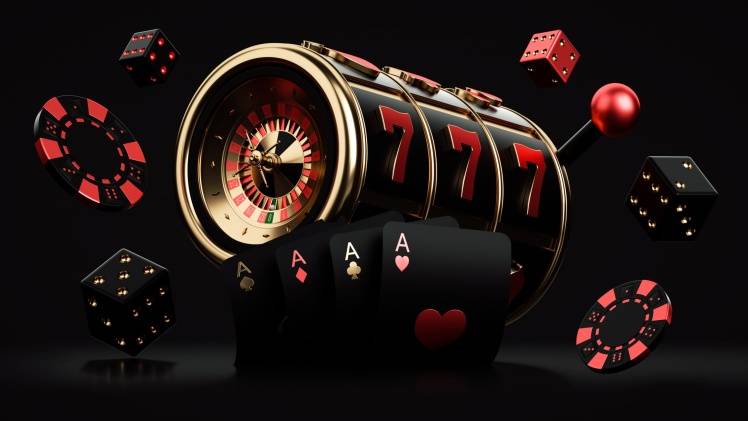
Introduction
Slot gaming has come a long way since its inception, evolving from mechanical machines to digital video slots. As technology continues to advance, the future of slot gaming holds exciting possibilities, particularly with the integration of blockchain technology and cryptocurrencies. Blockchain, the underlying technology behind cryptocurrencies like Bitcoin, offers a decentralized and transparent approach to various industries, including gambling. In this article, we will explore how blockchain and cryptocurrencies are reshaping the landscape of slot gaming, the benefits they offer to judi slot players and operators, and the potential challenges they may face in the future.
- Understanding Blockchain and Cryptocurrencies
1.1 What is Blockchain?
Blockchain is a decentralized, distributed ledger technology that records transactions across a network of computers. Each transaction, or “block,” is linked to the previous one, forming a chain of blocks, hence the name “blockchain.”
1.2 How Do Cryptocurrencies Work?
Cryptocurrencies are digital or virtual currencies that use cryptography for secure financial transactions. They operate on blockchain technology, allowing secure and transparent peer-to-peer transactions without the need for intermediaries like banks.
1.3 Popular Cryptocurrencies
Bitcoin, Ethereum, and Litecoin are some of the most well-known cryptocurrencies used for various online transactions, including gambling.
- The Rise of Crypto Casinos
2.1 Advantages for Players
Crypto casinos offer several advantages to players, including faster and cheaper transactions, increased privacy, and access to games from anywhere in the world.
2.2 Benefits for Operators
For casino operators, accepting cryptocurrencies can reduce transaction fees, increase the speed of payouts, and attract a broader audience of tech-savvy players.
2.3 Trust and Transparency
Blockchain technology provides transparency and immutability, allowing players to verify the fairness of games and the integrity of casino operations.
- Provably Fair Gaming
3.1 How Provably Fair Gaming Works
Provably fair gaming is a concept made possible by blockchain technology, ensuring that game outcomes are genuinely random and not manipulated by the casino.
3.2 Verification Process
Players can use cryptographic algorithms and seeds provided by the casino to verify the fairness of each game round.
3.3 Building Player Trust
Provably fair gaming builds trust between players and operators, as it allows players to independently verify the integrity of the gaming process.
- Tokenization of Slot Games
4.1 Tokenized Slot Machines
Tokenization involves representing real-world assets or items digitally through tokens on the blockchain. Slot games can be tokenized, allowing players to own and trade in-game assets as tokens.
4.2 Ownership and Control
Tokenization gives players ownership and control over in-game items, making them tradable and transferable across different platforms.
4.3 Enhancing Gaming Experience
Tokenization adds a layer of immersion and excitement to slot gaming, as players can collect, trade, and use virtual assets in and beyond the game.
- Decentralized Slot Platforms
5.1 Eliminating Intermediaries
Decentralized slot platforms operate on blockchain networks, eliminating the need for central authorities or intermediaries in the gaming process.
5.2 Fair Revenue Distribution
Blockchain-based platforms can ensure transparent revenue distribution to developers, operators, and players, creating a fair ecosystem.
5.3 Global Accessibility
Decentralized platforms enable players from different regions to access slot games without restrictions or the need for traditional banking methods.
- Challenges and Considerations
6.1 Regulatory Environment
The use of cryptocurrencies and blockchain technology in gambling may face regulatory challenges in some jurisdictions.
6.2 Volatility and Risk
Cryptocurrencies’ price volatility can impact players’ funds and the stability of gaming platforms.
6.3 Education and Adoption
Educating players and operators about blockchain and cryptocurrencies is essential for broader adoption and understanding of the technology.
- The Future of Slot Gaming with Blockchain and Cryptocurrencies
7.1 Mainstream Adoption
As cryptocurrencies become more widely accepted and regulated, their integration into slot gaming is likely to become more mainstream.
7.2 Enhanced Gaming Experience
Blockchain and cryptocurrencies will provide players with unique and immersive gaming experiences through tokenization, provably fair gaming, and ownership of virtual assets.
7.3 Global Reach
Blockchain-based slot platforms will allow players from all over the world to access a vast array of games without geographical limitations.
- Conclusion
The future of slot gaming is undeniably intertwined with blockchain technology and cryptocurrencies. These technologies offer numerous benefits, such as provably fair gaming, transparency, and ownership of in-game assets, which enhance the gaming experience for players. Furthermore, decentralized slot platforms provide opportunities for fair revenue distribution and global accessibility. However, there are challenges to address, including regulatory considerations, price volatility, and the need for widespread education and adoption. As the gambling industry continues to embrace innovation, blockchain and cryptocurrencies are poised to revolutionize the world of slot gaming, providing players with more secure, transparent, and immersive experiences. As players and operators embrace these technologies, the future of slot gaming looks bright, promising, and full of potential for positive change.




